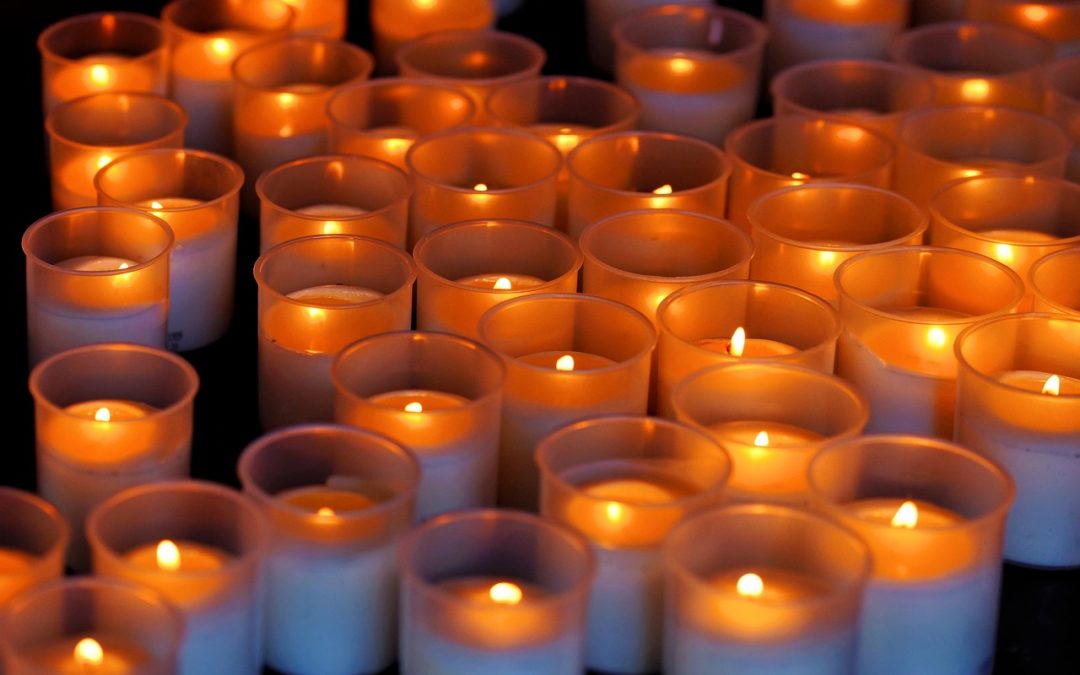By Rachel Ida Buff
In their 1991 song, “I hear They Smoke the Barbecue,” David Thomas, Tony Maimone, Eric Drew Feldman and Scott Krauss of the Cleveland band Pere Ubu imagine that “a door in through the Northern pole” has allowed aliens from Mars into our world. Speculation runs wild:
I hear they live on fruit and air.
I hear they love ole Yogi Bear.
I hear they’re good at parking cars.
I hear they want to be like we are.
In an era of refugee bans and restricted migration, suspicion of newcomers has a familiar ring. But the song ends happily enough, with the rustbelt crew of Pere Ubu sitting expectantly beside their barbecue grill, looking forward to meeting their new neighbors. There is room in the backyard for company.
Part of the reason that Zionism maintains any credibility after sixty years of brutal occupation is because it holds out a kernel of hope similar to the one that Pere Ubu imagines in their backyard barbecue scenario: that there could be shelter from the storm of history. It is a powerful vision: Jewish safety in our long diaspora, vouchsafed by the existence of a hyper-militarized “Jewish state.”
This Zionist dream underlies ongoing, unconditional Jewish support for the state of Israel. In the U.S., this dream underwrites brutal foreign and domestic policy in the name of securing Israel’s safety. At this writing, the Israeli military contractor Elta vies to construct the long-threatened U.S.-Mexico border wall. Broadcast as benefitting American democracy, support for Israel results in the construction of checkpoints, border walls; in dispossession, forced relocation, and other forms of coercion around the world. Since 1948, mainstream American Jewish institutions have supported the existence of Israel despite the mounting costs in human suffering. Sixty years out, the realization of the Zionist dream of refuge for Jews continues to displace Palestinians.
Many diaspora Jews hold onto the idea of Israel as a place of refuge, even if they have never been, never plan to go. It’s there, just in case. One way to re- imagine Jewish safety, then, is to reclaim this kernel at the heart of the Zionist dream and plant it differently. What if, instead of promoting safe harbor in one country to protect solely Jewish people, our visions of refuge proliferated, creating haven for the over 50 million displaced persons worldwide? It would have to be a place like and not like Israel, somewhere like the backyard described in the Pere Ubu song. Maybe it would have to be everywhere: Sanctuary Everywhere.
The idea of Sanctuary Everywhere updates the mid-twentieth century approach to safe harbor in one country that resulted in the creation of the state of Israel in 1948. The founding of Israel simultaneously offered a homeland for displaced Jews and resulted in the forced exile of Palestinians from their homelands in the Nakba, Arabic for the disaster of displacement occasioned by the founding of Israel. The history of Zionism after 1948 is replete with repression and violence: the loss of Palestinian lands and homes, the brutal implementation of walls and borders, the evolution of the militarized regime bent on securing at all costs a Jewish safety always presumed to be precarious, inequality in the treatment of Arab as well as Sephardi and Mizrachi Jewish citizens.
Part of the mid-twentieth century dream of refugee harbor was articulated in the 1951 U.N. Convention on the Status of Refugees, which guaranteed rights to displaced persons, including the right to work and live and, crucially, the right to legal documentation, including passports, for displaced and stateless persons. In contrast to trends in worldwide policies towards refugees and migrants, this document today seems almost utopian. At the same moment the United Nations High Commissioner on Refugees (UNHCR) articulated these high-minded principles, the United Nations Relief and Works Agency (UNRWA), the only UN organization to address the status of one national group, began creating refugee camps for displaced Palestinians. Sixty years later, the UNRWA is still in business.
Since 1948, the Right of Return guaranteed by the state of Israel to all Jews worldwide has been part of the continuing historical displacement of Palestinians from ancestrally held homelands. Working towards Sanctuary Everywhere, then, means opening the Right of Return to Palestinians as well. Founded as a nation to receive refugees, Israel could fulfill its promise of shelter from the ongoing storm of history.
What if everyone had a Right of Return to their homelands? What if they didn’t have to leave? Immigrant rights advocates have begun to talk about a Right to Stay Home against the forced displacement brought on by the dual forces of neoliberal austerity and environmental degradation. Many displaced persons maintain deep cultural and even spiritual connections to their homelands: Palestinians, of course, but other displaced peoples, as well, including indigenous nations.
Others, of course, flee homelands of necessity, “chased to the shore,” in Somali poet Warsan Shire’s words.. Like many Ashkenazi Jews after 1945, they have no wish to return. In such cases, Pere Ubu’s vision of the backyard barbecue as receiving community proclaims the importance of the work of creating safe harbor, everywhere.
An updated, 21st century dream of Sanctuary Everywhere has religious grounding. The Torah describes the establishment of “Cities of Refuge,” outside of the land of Israel, a place where those exiled could find sanctuary. Rabbi Neal Lovinger interprets the description of these sanctuaries as evidence of unconditional, divine love. This image of sanctuary offers safe harbor, in stark contrast to the current context of escalating Islamophobia, deportation raids, and white supremacist mobilizations.
In her magisterial novel, Almanac of the Dead, Leslie Silko observes the ways that the creation of Israel derailed centuries of itinerant Jewish hopes into state militarism and fear. Silko embodies these hopes in the figure of Karl Marx, who she calls a “desert dreamer” who described the brutality of capitalism. La Escapia, a Yaqui rebel leader, recognizes the similarity between Marx’ stories and those of her people: “That was how La Escapìa had satisfied herself Marx was reliable; his accounts had been consistent with what the people already knew.” For La Escapia, Marx’ diagnosis of injustice is key to imagining the return of Yaqui lands.
Safe harbor from the ongoing storm of history is a worthy dream. But the closed borders of a militarized state result in more displacement, suffering and violence. Instead, centuries of dreaming of shelter require that we create spaces and practices of sanctuary. The storm shows no sign of abating; we will need each other. The joy of imaging the world to come just might be in finding some company:
We’re not alone
and eager eyes watch the sky.
My new buddies and me, we say
Company must love the misery.

